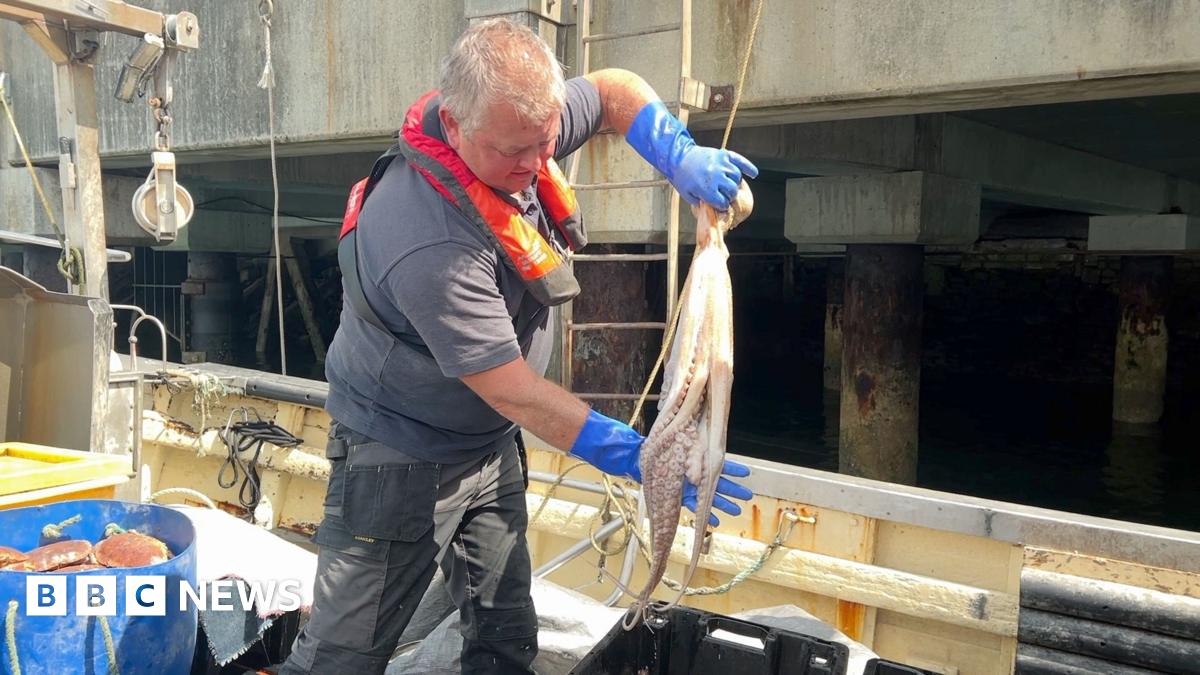T4K3.news
Increased octopus population threatens shellfish fisheries
Surging octopus numbers in the UK are causing alarming declines in shellfish stocks.

Rising octopus numbers are causing significant declines in shellfish populations along the South West coast of the UK.
Climate change leads to octopus population surge
The South West coast of the UK is experiencing an unexpected surge in octopus populations, attributed to climate change. This rapid increase in octopus numbers is causing a concerning decline in shellfish populations, including crabs, lobsters, and scallops, which are critical to local fisheries. Dr Bryce Stewart, a marine ecologist from the Marine Biological Association in Plymouth, points out that unusually warm sea temperatures and shifting ocean currents are significant factors contributing to this ecological shift.
Key Takeaways
"The octopus bloom is likely a result of unusually warm sea temperatures and shifting ocean currents."
Dr Bryce Stewart explains the reasons behind the increase in octopus populations.
"This rapid increase in octopus numbers is concerning for our local fisheries."
The implications of the octopus surge on shellfish stocks are highlighted.
The rise in octopus populations reflects a broader trend observed in marine ecosystems due to climate change. While octopuses thrive in warmer waters, the decline of shellfish poses a threat to the fishing industry. This situation raises important questions about the adaptability of local fisheries and the strategies needed to navigate changing marine life dynamics. The long-term sustainability of shellfish stocks and the livelihoods dependent on them may now be at risk.
Highlights
- Climate change is reshaping our marine ecosystems irrevocably.
- The octopus bloom epitomizes the consequences of warming seas.
- Our fishing industry must adapt to these new realities.
- The decline of shellfish risks our coastal economy.
Concerns over ocean changes affecting fishing industry
The surge in octopus numbers is leading to a significant decline in shellfish populations, risking the financial stability of local fisheries.
The implications of these shifts in marine life highlight the urgent need for adaptive measures in fisheries management.
Enjoyed this? Let your friends know!
Related News

Four fatalities reported from flesh-eating bacteria in Florida

States face loss of vaccination funding

Large jellyfish blooms reported in UK seas

Wildlife populations continue to fall drastically

US heat dome brings extreme conditions

Heat wave affects over 80 million Americans

Germany considers change in support for Israel

Israeli Forces Face Allegations of War Crimes
